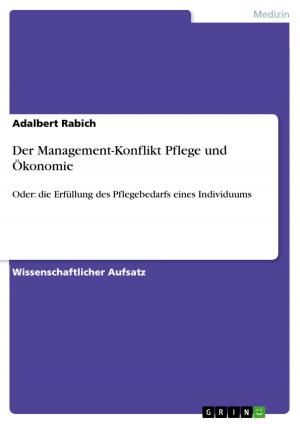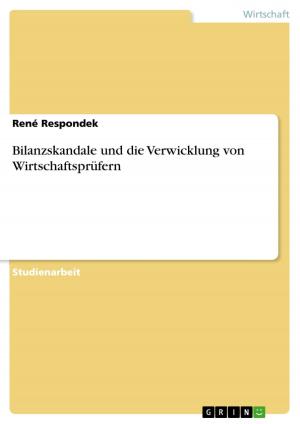Business & Culture - A study on Russia
A study on Russia
Business & Finance, Management & Leadership, Management| Author: | Oliver Pausch | ISBN: | 9783638614306 |
| Publisher: | GRIN Verlag | Publication: | March 9, 2007 |
| Imprint: | GRIN Verlag | Language: | English |
| Author: | Oliver Pausch |
| ISBN: | 9783638614306 |
| Publisher: | GRIN Verlag |
| Publication: | March 9, 2007 |
| Imprint: | GRIN Verlag |
| Language: | English |
Seminar paper from the year 2006 in the subject Business economics - Business Management, Corporate Governance, grade: 1,5, Reutlingen University (Production Management), 50 entries in the bibliography, language: English, abstract: The globalization of the economy and the constantly growing cooperation across national and cultural borders in education, business, science and technology foster increasing de-pendencies among nations. Furthermore, it necessitates a heightened awareness for inter-cultural issues and a substantial competence to deal with intercultural problems in political, educational, business and science organizations for the individuals involved. Political devel-opments like the unification process in Europe call into questions long established features and boundaries of national identity. Especially, the fall of the Iron curtain suddenly enabled close neighbors who had been separated for roughly two generations and who lost their knowledge of each other, if not, under the influence of the long ideological confrontation, even developed negative stereotypes of each other. The mentioned dramatic political changes in Eastern Europe make Russia an interesting point of interest. Therefore, this paper is intended to introduce and examine the historical, economical, political, societal, cultural and business developments that Russia encountered before and after this radical transition. Although, this paper provides a country overview to some extend, the main emphasis is on cross-cultural management where it is crucial to recognize and understand the covered areas besides business development, for they influence and, in the end, determine the basis of a country's value and belief system. Finally, this paper provides a cross-cultural study by Geert Hofestede that should showcase the impact of cultural differences on management comparing Russia to other countries in the world on various cultural dimensions.
Seminar paper from the year 2006 in the subject Business economics - Business Management, Corporate Governance, grade: 1,5, Reutlingen University (Production Management), 50 entries in the bibliography, language: English, abstract: The globalization of the economy and the constantly growing cooperation across national and cultural borders in education, business, science and technology foster increasing de-pendencies among nations. Furthermore, it necessitates a heightened awareness for inter-cultural issues and a substantial competence to deal with intercultural problems in political, educational, business and science organizations for the individuals involved. Political devel-opments like the unification process in Europe call into questions long established features and boundaries of national identity. Especially, the fall of the Iron curtain suddenly enabled close neighbors who had been separated for roughly two generations and who lost their knowledge of each other, if not, under the influence of the long ideological confrontation, even developed negative stereotypes of each other. The mentioned dramatic political changes in Eastern Europe make Russia an interesting point of interest. Therefore, this paper is intended to introduce and examine the historical, economical, political, societal, cultural and business developments that Russia encountered before and after this radical transition. Although, this paper provides a country overview to some extend, the main emphasis is on cross-cultural management where it is crucial to recognize and understand the covered areas besides business development, for they influence and, in the end, determine the basis of a country's value and belief system. Finally, this paper provides a cross-cultural study by Geert Hofestede that should showcase the impact of cultural differences on management comparing Russia to other countries in the world on various cultural dimensions.















